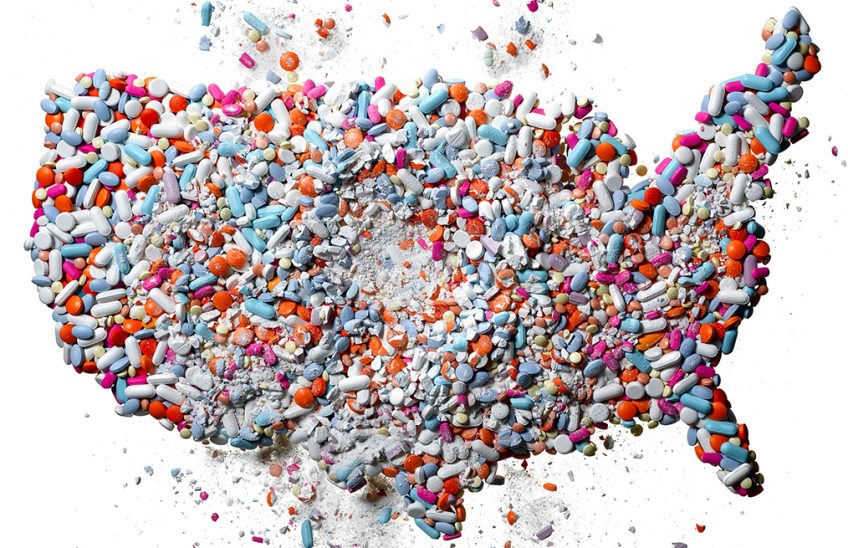CHICAGO, IL – Recently released federal data shows how drug makers and distributors contributed to the nation’s opioid epidemic by increasing shipments of opioid painkillers between 2006 to 2012.
The Drug Enforcement Administration (DEA) records show that over 76 billion oxycodone and hydrocodone pills were distributed to U.S. pharmacies during the 6 year time period. According to the U.S. Centers for Disease Control and Prevention (CDC), opioids contributed to more than 100,000 deaths in the United States between 2006 and 2012.
The Associated Press reported Purdue Pharma was fined $635 million for falsely marketing OxyContin as being less addictive than other generic and brand opioids; however, Purdue accounted for 3 percent of pills sold during that time compared to generic drug distributors accounting for nearly 90 percent of sales.
According to the CDC, other prescription and illegal opioids such as heroin and fentanyl have resulted in more than 430,000 deaths in the U.S. since 2000. Between 2006 and 2012, the annual amount of opioid-related deaths rose from 18,000 to more than 23,000.
Synthetic opioids, such as fentanyl, are among the most common drugs involved in drug overdose deaths in the U.S. According to the National Institute of Drug Abuse, there were 59 percent of opioid-related deaths involving fentanyl in 2017 compared to 14.3 percent in 2010.
Local and state governments have requested these records not be released to the public; however, U.S. District Judge Dan Polster, who is overseeing most of the cases, ruled that it could be made public. Records from 2013 to 2014 have not been released yet and have asked to be sealed and protected.
An article released in 2016 by PBS calls the opioid epidemic “the worst drug crisis in American history,” destroying lives nationwide regardless of age, race, wealth, or location. The CDC stated whites and Native Americans have experienced the largest rise in death rates; moreover, by 2014, whites and Native Americans were dying at double or triple the rates of African-Americans and Latinos.
Drug expert Dr. Andrew Kolodny told the New York Times “racial stereotypes” may be an explanation for the gap, saying studies have found doctors are more reluctant to prescribe painkillers to minorities, worrying they may sell them or become addicted.
More than 2,000 state, local, and tribal governments are seeking to hold drug companies accountable for the national crisis. According to the Associated Press, West Virginia, Kentucky, Tennessee, and Nevada all received more than 50 pills for every man, woman, and child each year.
Opioid addiction is a chronic disease that can cause major health, social, and economic problems. Opioids are a class of drugs that act in the nervous system to produce feelings of pleasure and pain relief (U.S. National Library of Medicine). Opioids change the chemistry in the brain and lead to a drug tolerance, resulting in needing increased dosages over time to experience the same effect. Opioids are potent, meaning they have a high potential for causing addiction in some people, even when administered and taken properly.
Medical professionals can make costly mistakes that lead to serious harm or death of a patient. Responsible parties can include:
- The physician who prescribed the medication for prescribing too much, the wrong dosage, or failure to monitor the patient after medication has been prescribed
- The hospital if medication was given during hospitalization or emergency room visit
- The pharmacy and/or pharmacist if the wrong drug or dosage was given to a patient
If you or a loved one has suffered from a prescription drug overdose or medical error, you may seek justice from a negligent medical professional by filing a medical malpractice lawsuit. It’s important to report and hold the responsible party accountable to prevent others from suffering in the same way. The attorney’s at Dinizulu Law Group, Ltd. work diligently to recover compensation for monetary, emotional, and mental losses you or a loved one may have suffered.
Please call (312) 384-1920 or visit www.dinizululawgroup.com to seek legal representation.



